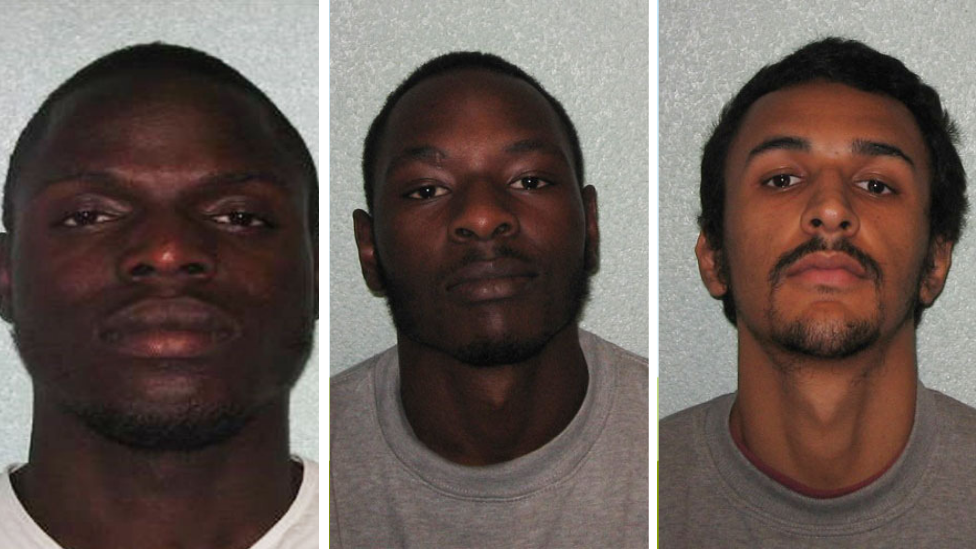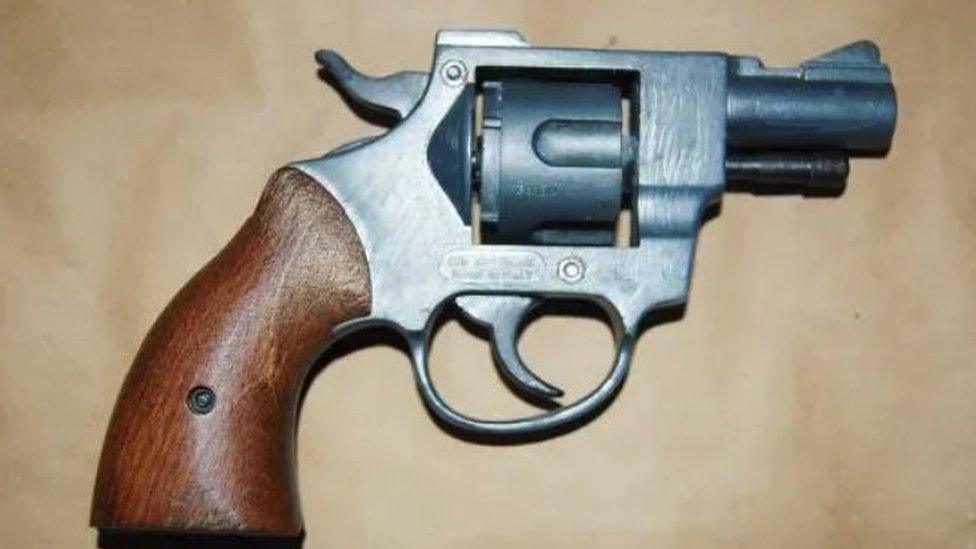County lines dealers jailed in 'landmark' slavery case
- Published

Glodi Wabelua, left, Michael Karemera, centre, and Dean Alford were sentenced at Inner London Crown Court
Three county lines drug dealers who used vulnerable teenagers as runners in a coastal city have been jailed in a "landmark case".
Glodi Wabelua, Dean Alford and Michael Karemera, all 25, recruited six youths to traffic crack cocaine and heroin to Portsmouth in 2013 and 2014.
The victims were used to carry drugs to Hampshire and money back to London.
It is believed the three are the first to be charged under the Modern Slavery Act in relation to county lines.
What is County Lines?
Inner London Crown Court was told the victims - three girls and three boys - would sometimes be forced to stash drug packages in their body cavities and would usually be housed in the homes of addicts, often with needles and drug paraphernalia lying around.
They had to ask permission to use the proceeds from selling drugs for buying food, and were not allowed to return to London until all the drugs were sold.
The Metropolitan Police said that when one victim tried to leave the gang lifestyle, he was stripped naked by associates of Karemera and had a gun placed in his mouth.

Police said a gun was used when one of the victims tried to leave
Judge Usha Karu said: "One of the main reasons [the victims] were chosen was because of their youth, many were arrested for possession with intent to supply and thus they too became embroiled in the justice system.
"The level of psychological harm they may have suffered is hard to gauge.
"For children who are vulnerable it is quick and easy money - the fact that they consented is plainly no defence."
The Met called it a "landmark case" as the three were convicted under modern slavery legislation.
Wabelua, of Tottenham, was convicted of one count of trafficking under the Modern Slavery Act and jailed for three-and-a-half years
Alford, of Canterbury, pleaded guilty to three counts of trafficking and was jailed for four years.
Karemera, of Lewisham, also pleaded guilty to one like charge and was jailed for five years.